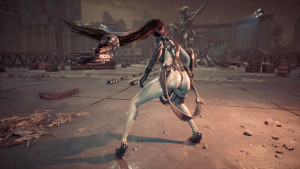Please support Game Informer. Print magazine subscriptions are less than $2 per issue
Interview: Hector "OpticH3CZ" Rodriguez Of OpTic Gaming

[photo by Brett Kramer, all rights reserved]
As owner of OpTic Gaming, Hector “OpticH3CZ” Rodriguez is an eSports jack-of-all-trades, guiding his team’s efforts both as game casters and high-stakes Call of Duty tournament players. We recently spoke with him about his work and overall vision for OpTic.
This article originally appeared in issue 254 of Game Informer.
Talk about your day-to-day duties as owner of OpTic Gaming.
I wear many hats here at OpTic Gaming, but my main one is to make sure that everything that needs to be done for the players is taken care of, making sure the team’s house bills are paid for, because these guys’ main focus is gaming. I’ve lived a life where I worked 40 hours a week at a corporate office in a cubicle. These guys, all they know is video games. Because I was older and had at least some experience in corporate America, I had a small business sense as to what would work. When I started managing the team and became owner of the team, I decided I was going to be the team manager, the salesperson, [and] the director of operations. I was going to do it all because I had this vision for what this thing was going to become.
The entire team lives in one house in the Chicago area?
In June of 2013, the team and I agreed that if I got them a team house to live in, it would benefit the overall business, from the competition side to the entertainment side of video games. With having somebody who is experienced like NaDeSHoT [in the house], I knew the other three guys were going to be able to learn from him – and at the same time attract some of the fans that have already been attached to NaDeSHoT and OpTic. We started out in a house that had almost no furniture – all it had was the desks the guys play on and the office chairs. They all have air mattresses. They haven’t even bothered to go buy regular beds, because all they do every day is work on their craft.
Are players under contract with you? Do they get a salary, or just endorsements?
Our organization was built on entertainment. By the time that I acquired the professional team I had already built a steady business where entertainment was going to pay the bills. It’s more lucrative for players to come play for us because we’ve been around for so long that we have a firm grasp on how players can grow themselves into a personal brand. So for me to pay somebody a salary doesn’t necessarily make sense. What I’m offering is a chance for them to gain popularity.... I [teach] them how to be their own personality on YouTube. Online media is a bigger payout because you’re not relying on a paycheck from an organization at that point. We help with [endorsement] deals, and they do get a [portion] of the partnerships that we have as an organization.
What about competition prize winnings?
Optic does not take any percentage of their winnings. We’re very lucky to be in a position to say, “We have our own business where we’re making our own money.” So there’s no need for us to take money from the players. They’re the ones competing. Not all organizations do that. It’s a model that is necessary in eSports because you need to be able to make money. If you’re dumping thousands of dollars to fly these guys across the country and overseas to compete and win, it makes sense for them to make a percentage of that. But we don’t take a percentage; all the winnings are split evenly between the players.
When you’re selecting people to be on the team how do you balance the need for guys that can win at a competitive level at tournaments with the need to have personalities that can connect with an audience?
I hit the lottery when I partnered up with my current teammates. I was lucky enough to partner with people who just happen to be really good at being funny and know how to be themselves on camera. My guys just happen to be really personable and really funny. It was a grand slam from the get-go.
You have a bunch of young guys who are playing an insane amount of Call of Duty living in one house. How do you manage the different personalities on the team or conflicts that might arise?
Part of the job is making sure that everybody in the house gets along. Competitive players are driven by competition and that has a lot to do with their personality and, at times, their ego. Everybody wants to be the best. That’s what makes a good competitive person. When you’re in a house with four competitive players everything is a competition. We just invited a former professional Halo player to move into the house because he’s really knowledgeable about fitness and nutrition. Everything to him is a competition – who drinks their nutrition shake or their food shakes quicker, etc. There’s always going to be a clash [about] who’s the best or who’s more popular or who does what the best. I’ve always been a very respectful person, so I’ve done a very good job at respecting the way people are.
How do you value raw individual skill in each player versus the chemistry a team that can play together?
Anybody can have good chemistry when they’re winning. The chemistry that somebody needs to be to be successful is the chemistry that works when times are at their worst. If these guys get along outside the game, the in-game stuff is going to work itself out. [Maybe] it’s one player using one gun, and the team saying “Hey you need to use a different one.” Because they’re so close and friendship is there, it will be a lot easier for him to agree with his friends as opposed to just his teammates.
How important is placing and winning the big tournaments to OpTic?
Now that we’re in this position and now that we don’t really need to compete in order to make a living off of our passion and our love of video games, it has become something that we want more than anything. Winning is the only thing that is not going right for us now. Winning to us is much more than prize money – we can live with or without that – but it’s winning, it’s that championship, it’s that number one spot that really drives these guys.
You placed third in the recent Call of Duty championships. Were you pleased with that result?
We won first place on the first-ever Call of Duty championships. In 2013, we placed third, and this year again we placed third. It was the second time my team played together on LAN, and that always changes people. Playing online is one thing, but once you get to LAN it is a completely different game. There are no connectivity issues. You’re in a live setting with your opponent literally feet away from you. I have to be honest, I thought we were going to be top eight at best, so for them to run through teams that were constantly beating us in previous tournaments and online tournaments – it was a great accomplishment. I’m very proud of them.
Has the new popularity of MOBAs like League of Legends negatively affected the popularity of Call of Duty or other shooters?
I think eSports as a whole is growing. Obviously, the MOBAs and PC gaming as a whole is leading the charge on that, but that doesn’t necessarily mean that Call of Duty or shooters as a whole are suffering. We’re still in our infancy stages. It’s big, but it not as big as it could be. If we focus on doing everything right, from the developer all the way down to the professional player, as long as everyone does their job the way that they should be doing their job, I think that it will continue to grow. As an example, NaDeSHoT, the most popular eSports player in the world in December of 2012, he had, I believe, 15,000 followers on twitter. He sits at 520,000 followers on Twitter today. In [two] years, he has grown tremendously.
What are your goals for OpTic in the next few years?
Expanding is always in front of us. I know, at one point or another, I’m going to have to grow with eSports and pick up a League of Legends team. As it stands, it’s something that is in the future. As big as we are right now, there is so much more room for improvement. We need to hire to help me with the things that I need help with. As a company we’ve reached a plateau where we need to hire a salesperson to represent the 48-52 million monthly impressions that we get across our network. We need to start getting other brands involved. We need to make them aware that this is a thing, this is happening and it’s growing.










